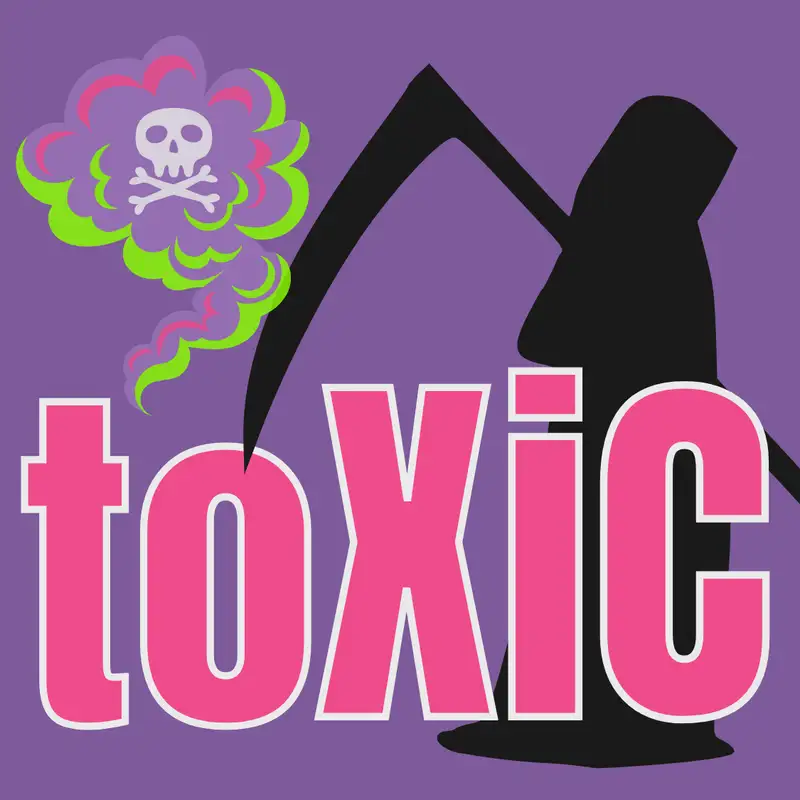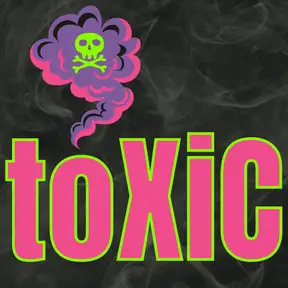
Ep. 1 — It Was Never Safe
What's going on?
My name is Jon Murphy, psychiatric
nurse practitioner, and this
is the first episode of Toxic.
This is a new show.
So what counts as toxic?
Well, let's just make some things clear.
It doesn't have to be physical abuse,
it doesn't have to be explosive.
It can be subtle emotional neglect,
gaslighting, triangulation, chronic
invalidation, and yes, it can happen
in families, relationships, friend
groups, and work environments.
what are some signs that you're
dealing with toxic individuals?
I.
Do you ever get the feeling that you
might be walking on eggshells feeling
responsible for other people's emotions.
Well, is it natural to feel that way?
I would argue no.
So why do we?
Well, our nervous system is learned.
Uh oh.
It's important for us to be
responsive to other people's emotions.
A lot of this has to do with
how we survive, which I talk
about over on survival notes.
Overthinking everything you feel
and say, certainly not what would be
conducive to the survival of humanity.
Chronic guilt, internalized shame,
freeze responses, anything emotional.
So human beings will thrive under
the right conditions, but we're
not always in the right conditions.
And despite what condition we're
in, we can do so much to survive
our survival is our story.
So.
If we're coming from a place of learning
what we've been through, acknowledging
something in the past that was toxic, even
if we didn't acknowledge it at the time,
maybe we literally didn't even notice.
Maybe we've told ourselves some things
that just have to be true, bootstraps,
best they could, all that stuff.
But we have to understand if
you're an adult over the age of 21.
You're wired differently.
Everything that happened
before is a little different.
So your emotions are normal.
Anything that you feel, it's so automatic.
It comes from a primitive part of us,
the limbic system, our nervous system.
It reacts and responds
automatically and involuntarily
based upon what we're exposed to,
our experiences of life, what we
see, what we feel, what we touch.
But what is eliciting
such a strong response.
What makes us anxious?
What makes us frightened?
What makes us agitated?
We grow among other people.
We're wired based upon
our dynamic socially.
These are the optimal
conditions for human beings.
We are social creatures, so therefore
what we experience is largely
related to those that move around us.
Move between us, the groups that
we're in and group psychology
is a very important concept.
The psychology of groups.
Once a group is formed,
everyone gets dumber,
so the smartest person in the
group will never be as smart as
they will be on their own because
a group assimilation must occur.
Individuality always takes a backseat.
To group identity within a group.
So we grow in groups and now as adults,
we need to critically look at what these
groups are, what is our role in the group?
What are our expectations
within the group?
We cannot change anything
outside of ourselves.
What we can do and what we need
to do is focus on how we feel
first, how it makes you feel.
The involuntary responses, those
emotions, but it might even be
too much to notice emotions.
So let's focus on physical.
What's in your body?
Is your heart racing?
Is your heart thumping?
Are you sweating?
There's so many different
things we can do automatically.
Fight or flight.
Those survival responses.
People go to the emergency room.
It's one of the most common,
if not the most common reason
people go to the emergency room.
What?
Anxiety?
What is anxiety?
My heart's racing.
What makes your heart race?
Well, survival response.
Your nervous system doesn't feel safe, so
we need to look at ourselves first.
If anyone tells you that emotions
aren't normal, they're probably toxic.
Let's talk about those toxic
people, those toxic parents, but
we're not gonna get into that yet.
We have to develop a language
for identifying feelings
and things within ourselves.
It all starts here first, we
have to shift our alignment.
We start with ourselves because
we don't need anyone else anymore.
Now, if you're an adolescent,
social bonds are still important.
But you no longer rely on your primary
group, your primary family, the group
for which you were born, that you
depend on, that you have to deal with.
And if we survive, if we continue to
live and grow, now we're a teenager.
We no longer depend on our parents in
the same way, so the veil is lifted.
And that can be a time of rebellion
for teens, which culturally
we blame the teen for, right?
It's the punk, it's
the dysfunctional teen.
It's all the teen's fault, and we
need to think about these cultural
overlays and myths, why they exist.
If we're gonna help ourselves, we have
to demystify everything outside of us and
look at ourselves first and be real about
what it is we feel and how to feel safe.
Once we feel safe, then we'll have a
better vantage point for moving forward
and understanding how to detoxify the
shame, detoxify the blame, set boundaries
with immature people, with abusive
people, but ultimately have all of this
occur from a different vantage point.
When we're calm, we're truly here.
We're truly present.
The only way I've been able to experience
life fully as an adult is by removing
toxic individuals from my life and
helping other people do the same.
Developing the Survival Code modality,
which I talk about over on my blog line
by line, as well as my other podcast,
survival Notes, I just really wanted a
place to get down and dirty and talk about
these controversial topics, narcissism,
personality disorders, going no contact.
All of these things that pop up and are
a part of psychology in our modern day.
And of course there's a
lot of assumptions made.
People have a lot of strong feelings and
opinions about 'em, but I have a voice
here, not only as someone that's lived it.
But someone that works with others and
has that clinical experience, I can only
help other people because I've learned
how to help myself and understanding the
healing that occurs personally, how you
can feel one way and then so differently
simply because you've set boundaries.
And what our boundaries?
These are all topics we're gonna get
into and I'm looking forward to it.
But for now, this is Jon Murphy,
psychiatric nurse practitioner,
I will talk to you soon on
the next episode of Toxic.
